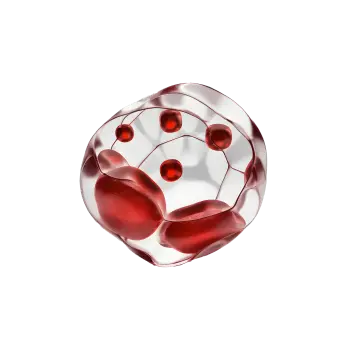A common trigger for anemia is bleeding. Sometimes bleeding can be hidden such as when it comes from the stomach or intestines. In such cases, a low level of hemoglobin can be the first sign of problems in the gastrointestinal tract. Other types of anemia result from either a decreased production of red blood cells or an increased breakdown of them, which exceeds production.
Common symptoms of anemia:
- Fatigue and weakness
- Pale skin and mucous membranes
- Dizziness or feeling of being "ready to pass out"
- Shortness of breath, especially on exertion
- Cold hands and feet
It is important to note that these symptoms can vary depending on the severity of anemia and its specific cause. If any of these symptoms occur and you suspect anemia, it is wise to consult a doctor for proper diagnosis and treatment. Causes may include iron deficiency, lack of vitamin B12 or folic acid, chronic disease, genetic factors, or bleeding.
What is secondary anemia?
Secondary anemia occurs when the production of red blood cells is inhibited due to an underlying disease. It is common for certain diseases to trigger secondary anemia, including cancer, kidney failure, diabetes, inflammatory diseases such as rheumatism, and various forms of infection. These underlying diseases affect the body's ability to produce enough red blood cells, which in turn leads to a reduced amount of oxygen transport and the characteristic symptoms of anemia. Treating the underlying disease is an important aspect of managing secondary anemia and can help restore a healthy balance in the body's hematopoiesis. It is essential to consult with a physician to properly diagnose and manage both the primary disease and the resulting secondary anemia.





















